
Brittish Actors

Anthony Hayward’s obituary of Ronald Fraser in “The Independent”:
He was best known on television for his Seventies sitcom roles as the rumbustious old colonial “Badger” Allenby-Johnson, arriving back in Britain and confronting the permissive society, in The Misfit and a wacky police inspector in Spooner’s Patch. He was also known as a man about town in the Sixties, often to be found in London’s pubs and nightspots.
Born in Ashton-under-Lyne, Lancashire, in 1930, the son of a Scottish builder and interior decorator, Fraser caught the acting bug while performing in Terence Rattigan’s French Without Tears in Benghazi, North Africa, during National Service with the Seaforth Highlanders. He subsequently trained at RADA and, on leaving in 1953, became a dresser to the legendary actor-manager Sir Donald Wolfit at the King’s Theatre, Hammersmith, before gaining more acting experience at the Citizens’ Theatre, Glasgow. Fraser made his London stage debut in The Good Sailor and joined the Old Vic Company in 1954.
His many West End performances included roles in The Long and the Short and the Tall, The Ginger Man, The Singular Man, Androcles and the Lion, The Showing Up of Blanco Posnet, Purple Dust, Entertaining Mr Sloane, The Pirates of Penzance and High Society. He also appeared on Broadway in La Grosse Valise and played Falstaff in a production of The Merry Wives of Windsor at the Open Air Theatre, Regent’s Park.
In almost 50 film roles, Fraser acted alongside such greats as Robert Mitchum, Deborah Kerr, Norman Wisdom, Laurence Harvey, David Niven, Harry Andrews, Richard Todd, Maurice Chevalier, Tony Hancock, Richard Burton, Elizabeth Taylor, James Stewart, Peter Finch and Ralph Richardson. The films included Black Ice (his debut, 1957), The Sundowners (1960), There Was a Crooked Man (1960), The Long and the Short and the Tall (1960), The Punch and Judy Man (1962), The Flight of the Phoenix (1965), The Killing of Sister George (1968), the surrealistic comedy The Bed Sitting Room (1969), the satirical, Monty Python-style The Rise and Rise of Michael Rimmer (1970) and the beautifully made family drama Swallows and Amazons (1974, based on Arthur Ransome’s novel).
But, as the British film industry went into its bleak years of production in the Seventies, Fraser was increasingly seen in pictures such as the comedies Rentadick (1971) and Ooh, You Are Awful (1972) and exploitation films such as Percy’s Progress (1974) and Come Play with Me (1977). Roles on the big screen appeared to improve with his appearance in The Wild Geese (1978), although Trail of the Pink Panther (1982) was disappointing, as was director Julien Temple’s musical Absolute Beginners (1986).
Fraser experienced a revival in Scandal (1988), playing Justice Marshall – who tried Stephen Ward for living off the immoral earnings of prostitution in the Profumo affair of the Sixties – Let Him Have It (1991) and The Mystery of Edwin Drood (1993). He was due to play an aristocratic Marxist taxi-driver, driving a Rolls-Royce, in the forthcoming feature film I Love You Love Me Love, to be directed by James Cellan-Jones.
On television, Fraser made his name as Basil “Badger” Allenby-Johnson, a rubber planter returning from Malaya to find a very different England from the one he had left, in two series of Roy Clarke’s The Misfit (1970-71). Complete with Panama hat and clinging on to Edwardian standards, “Badger” was shocked by the society around him – and the casual behaviour of his son Ted (played by Simon Ward). He was even more shocked when he had to travel north in a vain search for employment.
Fraser returned to sitcom in 1979 as the manic Inspector Spooner in the first series of Ray Galton and Johnny Speight’s spoof police series Spooner’s Patch. Set in Woodley police station, the stories involved corruption and skits of other television policemen. However, Fraser did not continue in the role when the programme returned for two more series and was replaced by Donald Churchill.
His dozens of character roles on television have included appearances in Pennies from Heaven (1978), Brideshead Revisited (1981), Fortunes of War (1987), Taggart: Violent Delights (1992), The Blackheath Poisonings (1992), Class Act (1994, as a judge, alongside Joanna Lumley) and P.G. Wodehouse’s Heavy Weather (1995, as Sir Gregory Parsloe).
One of Fraser’s last television appearances was as the drunken judge Sir Richard Gregory in The Fortunes and Misfortunes of Moll Flanders, Andrew Davies’s 1996 adaptation of Daniel Defoe’s classic novel. Davies created the role to give Moll the reprieve that saves her from the gallows and allows her to be transported to Virginia instead. The worse for drink, Sir Richard leaves a tavern with Moll (Alex Kingston) and has sex with her in his carriage, leaving him open to blackmail and being forced to give her a pardon.
Fraser, a colourful character, admitted to a fondness for alcohol and explained away several drink-driving convictions as resulting from “a little revelry on the roads of our kingdom”.
Anthony Hayward
The above obituary from “The Independent” can also be accessed online here.
Ronald Gordon Fraser, actor: born Ashton-under-Lyne, Lancashire 11 April 1930; married 1956 Elizabeth Howe (two daughters; marriage dissolved 1964); died London 13 March 1997.

Anthony Hayward’s obituary of Anne Kirkbridge in “The Guardian”:
In the role of Deirdre Barlow in the ITV soap Coronation Street, the actor Anne Kirkbride, who has died aged 60 after a short illness, found a job for life – and was happy not to endure the stresses, lack of routine and long periods out of work experienced by most actors. “I just enjoy having something to do that’s good, something that’s interesting and gives me a lot of scope,” she once told me in a rare interview. “I wouldn’t be here if I wanted to perform Shakespeare. I never really wanted to be an actress. This is a nine-to-five job. This is how I earn my money. The thought of this show coming off or me losing my job fills me with terror.”
A reluctant star, Kirkbride found fame and press attention difficult to cope with. During my interview, she sometimes fail- ed to find the answers to questions and just shook her head and waved her hands around in front of her face. Away from the Coronation Street studios, Kirkbride was a million miles from her screen character. She left behind Deirdre’s spectacles and pinnies, wore contact lenses, shirts and jeans, and had the aura of a much younger person.
She made her debut in the television soap opera in 1972, with just three lines as Deirdre Hunt, who was discovered drinking in a pub with Alan Howard (Alan Browning) by his then wife, Elsie Tanner (Patricia Phoenix). A year later, Kirkbride returned when Deirdre took her typing skills to the builder’s yard belonging to Len Fairclough (Peter Adamson), where she fell for his business partner, Ray Langton (Neville Buswell). The two married in 1975 and had a daughter, Tracy, but the marriage fell apart and the rest of Kirkbride’s Coronation Street career was dominated by Deirdre’s rollercoaster marriage to Ken Barlow (William Roache).
In 1983, two years after their wedding, Ken found out that Deirdre was having an affair with Mike Baldwin (Johnny Briggs) and told her to leave. The explosive storyline proved to be the serial’s biggest to that date, with unprecedented press coverage. It caught the imagination of the public to the extent that the electronic scoreboard at a midweek Manchester United game informed 56,000 fans of the drama’s resolution: “Deirdre and Ken united again!”
When Ken went astray himself, having an affair with Wendy Crozier (Roberta Kerr), Deirdre threw him out. The couple divorced and, in 1994, Deirdre married a Moroccan waiter, Samir Rachid (Al Nedjari), but their happiness was shortlived. He died in hospital after being attacked by thugs.
Kirkbride was then firmly at the centre of another storyline that captured the nation’s imagination. When Deirdre was duped by Jon Lindsay (Owen Aaronovitch), who falsely claimed to be an airline pilot, moved into an expensive house with her and already had a wife and children, she found herself framed for credit card and mortgage fraud, and was sent to prison in 1998. She was released after several weeks when another of the conman’s victims came forward. In real life, the storyline had been mentioned by the prime minister and galvanised the public to launch a Free the Weatherfield One campaign. Eventually, Deirdre and Ken were re- united and remarried in 2005.
Kirkbride was born in Oldham, Lancashire, the daughter of Jack, a cartoonist, and his wife, Enid (nee Kirkham). As a child, she showed a desire to perform. Aged seven, she disappeared while on holiday in Wales and was found giving a sermon, in a convincing Welsh accent, in an empty chapel. She also learned the US comedian Spike Jones’s zany routines off by heart. When the family moved to the Saddleworth village of Scouthead when she was 11, Kirkbride joined the Saddleworth Junior Players, then the Oldham Rep Junior Theatregoers’ Club.
On leaving Counthill grammar school, Oldham, in 1970, she became an assistant stage manager with Oldham repertory theatre and advanced to acting roles. In between productions, she stage-managed a charity performance of Snow White. She made her first screen appearance in a play made by the Manchester-based Granada Television. In Another Sunday and Sweet F.A. (1972), written by Jack Rosenthal and directed by Michael Apted, she was seen in hotpants and a yellow knitted hat as a footballer’s girlfriend cheering on his Sunday league team from the touchline. Happy with her theatre work and resistant to change, she had had to be persuaded by her father to audition for the part.
This led on to an audition for the pilot episode of a new Granada series. Instead, she was offered the bit part of Deirdre Hunt in Coronation Street. Confirmation that she had become a staple of the soap came in 1984, when she, William Roache and Briggs jointly won a Pye Television award for their performances in the love triangle storyline.
In 1993, a year after marrying the actor David Beckett – who had played Dave Barton, Deirdre’s handyman boyfriend, in Coronation Street – Kirkbride was diagnosed with non-Hodgkin’s lymphoma, a cancer affecting her neck. She lost most of her hair as a result of chemotherapy, returned to the Granada set with a wig after six months and was finally given the all-clear in 1998.
However, as she put this illness behind her, Kirkbride was diagnosed with clinical depression. “I’m too sensitive, everything hits me too hard and affects me too much,” she said in a 2012 documentary, Deirdre & Me: 40 Years on Coronation Street. “I realised that all my life I’d probably suffered from a very mild form of depression.” She was prescribed anti-depressants and immediately felt better.
Inheriting artistic talents from her father and photographer great-grandfather, Kirkbride enjoyed photography and painting, particularly properties and landscapes around her Spanish holiday home. Exhibitions of her paintings were staged at galleries in Didsbury, Manchester, where she lived.
In September 2014, Granada Television announced that it had granted Kirkbride extended leave for “personal reasons”, and she was last seen in Coronation Street in October, after appearing in 1,439 episodes.
Kirkbride is survived by her husband.
• Anne Kirkbride, actor, born 21 June 1954; died 19 January 2015
The above “Guardian” obituary can also be accessed online here.
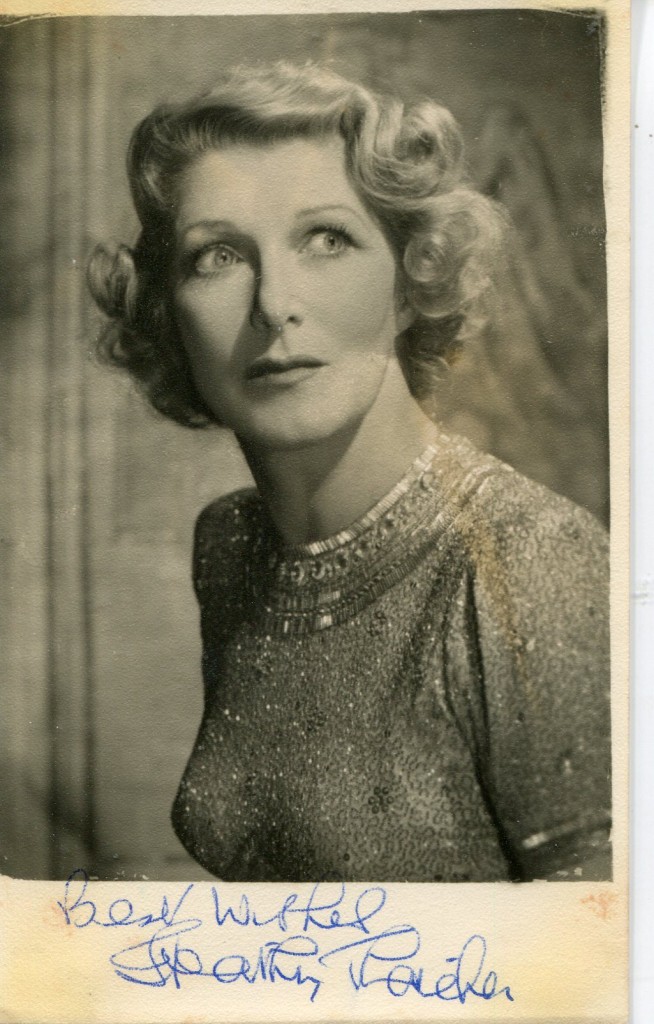
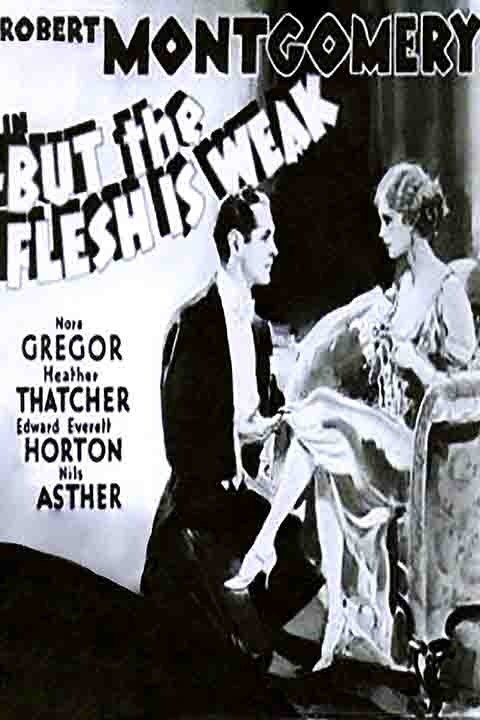
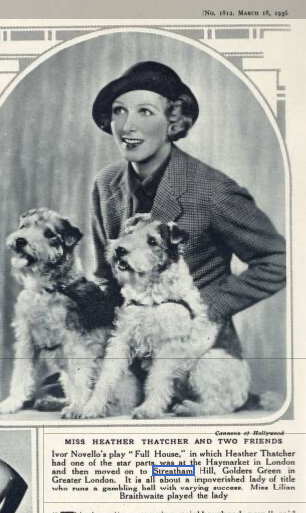
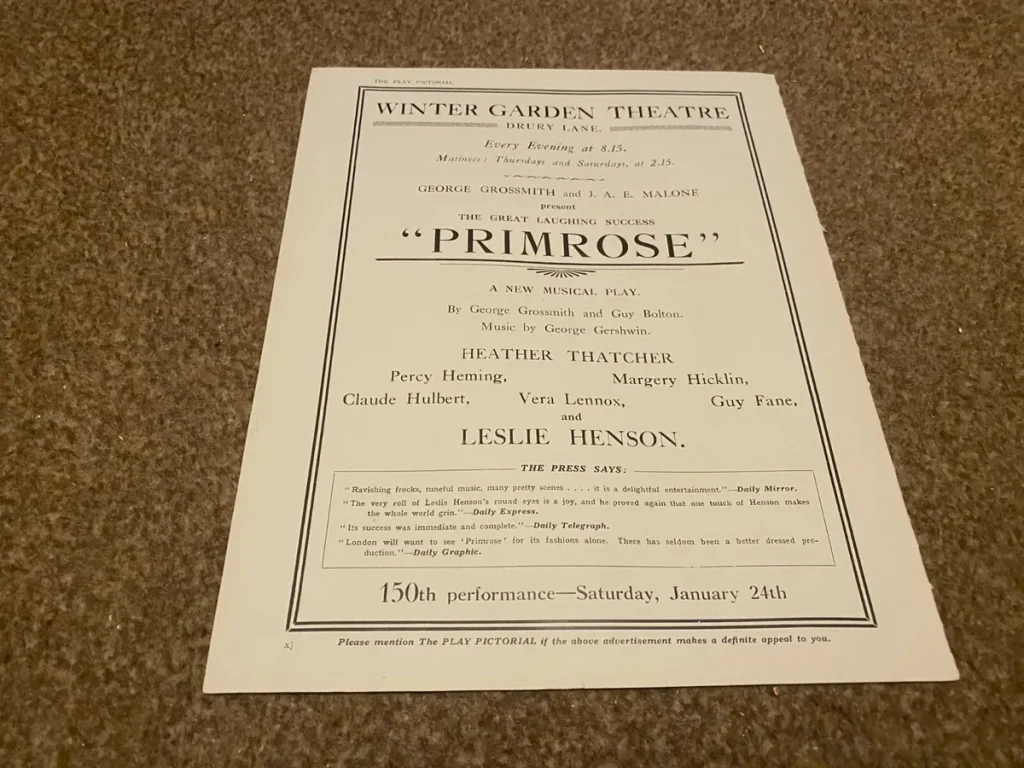
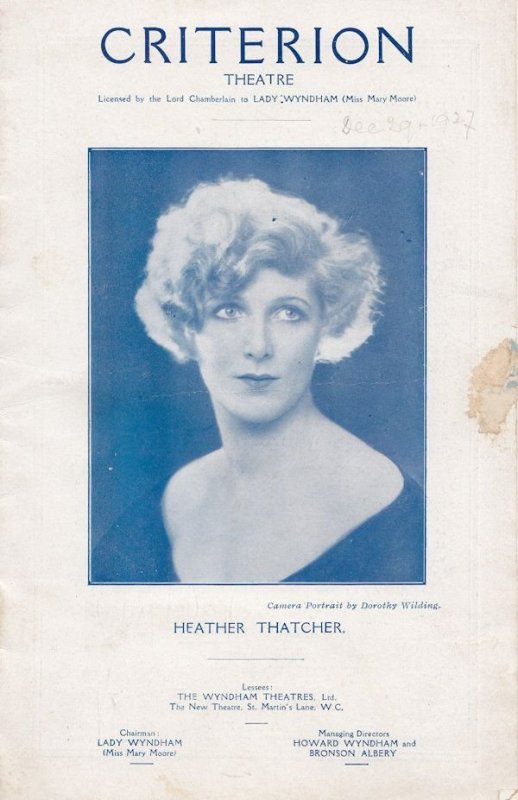
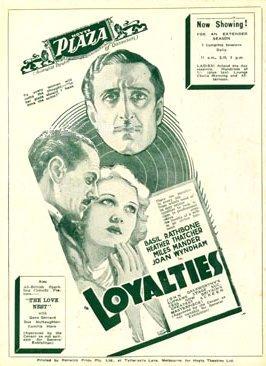
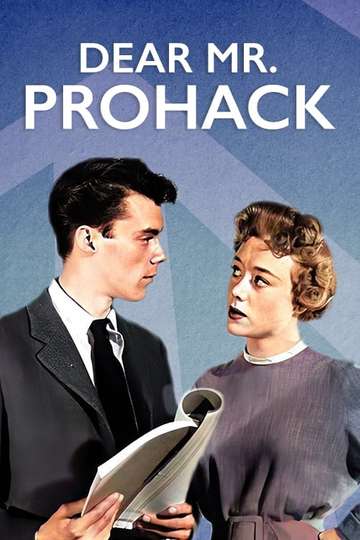
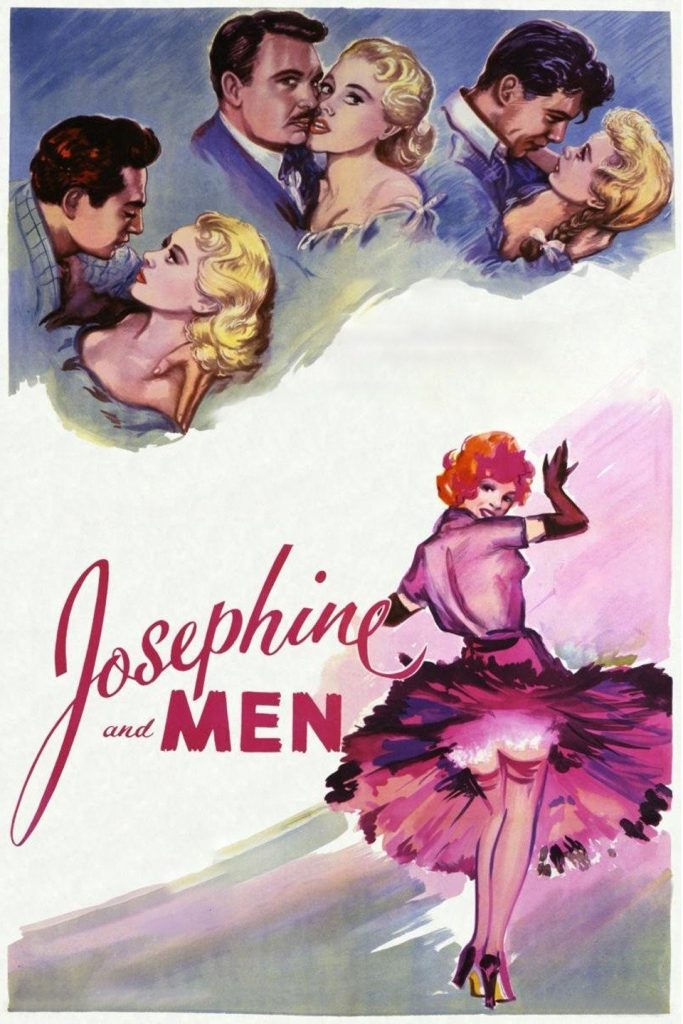
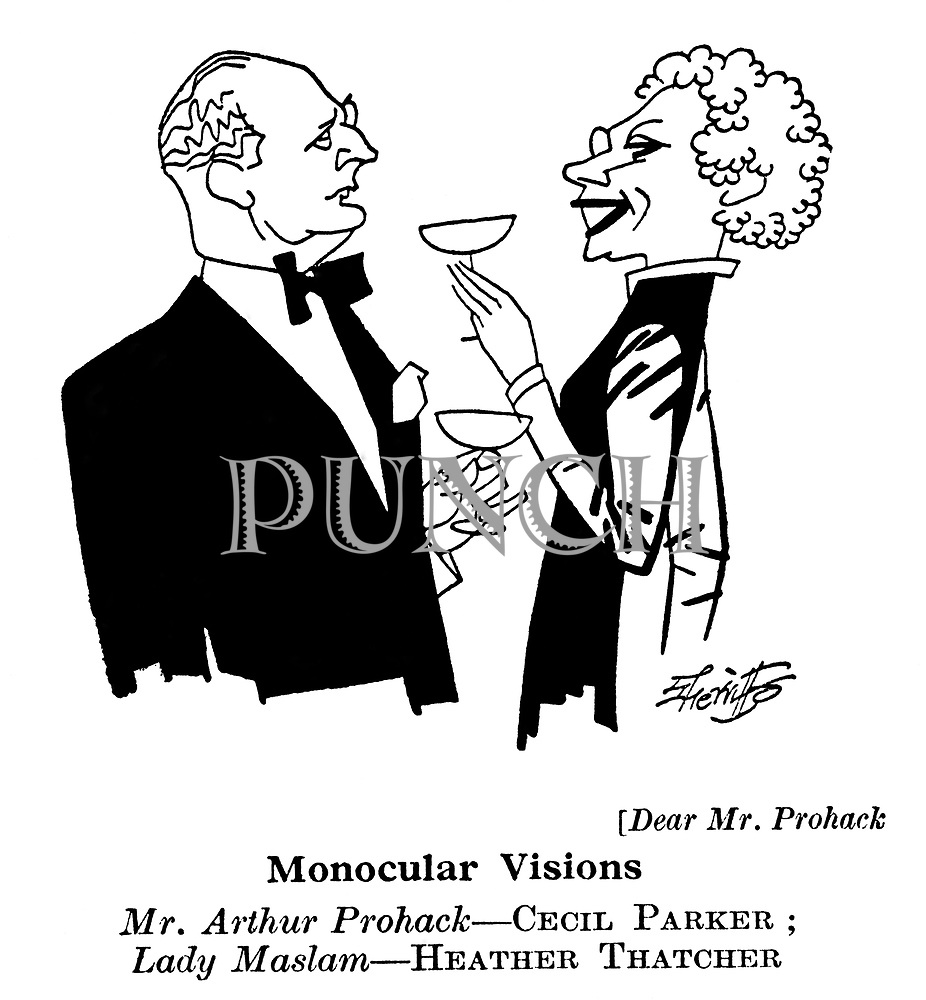
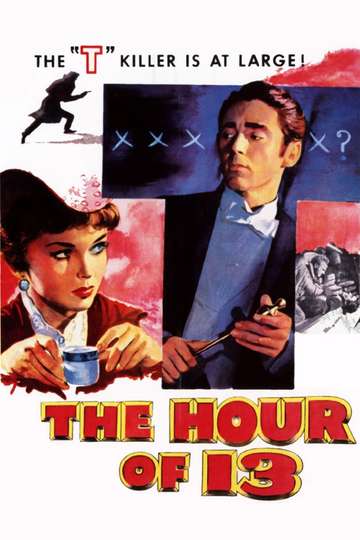
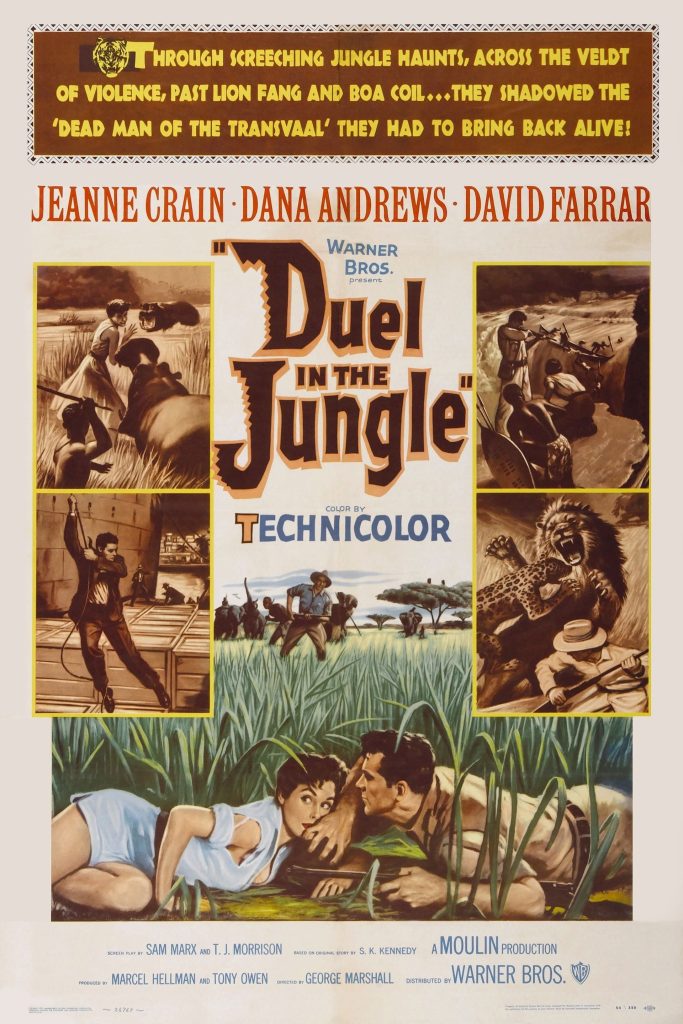
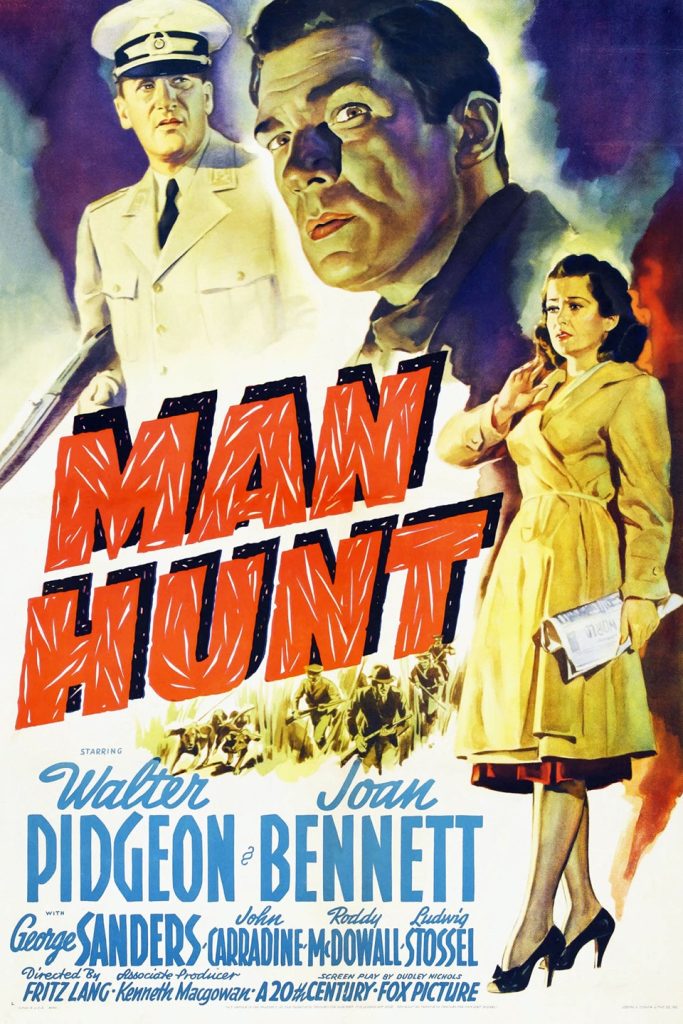
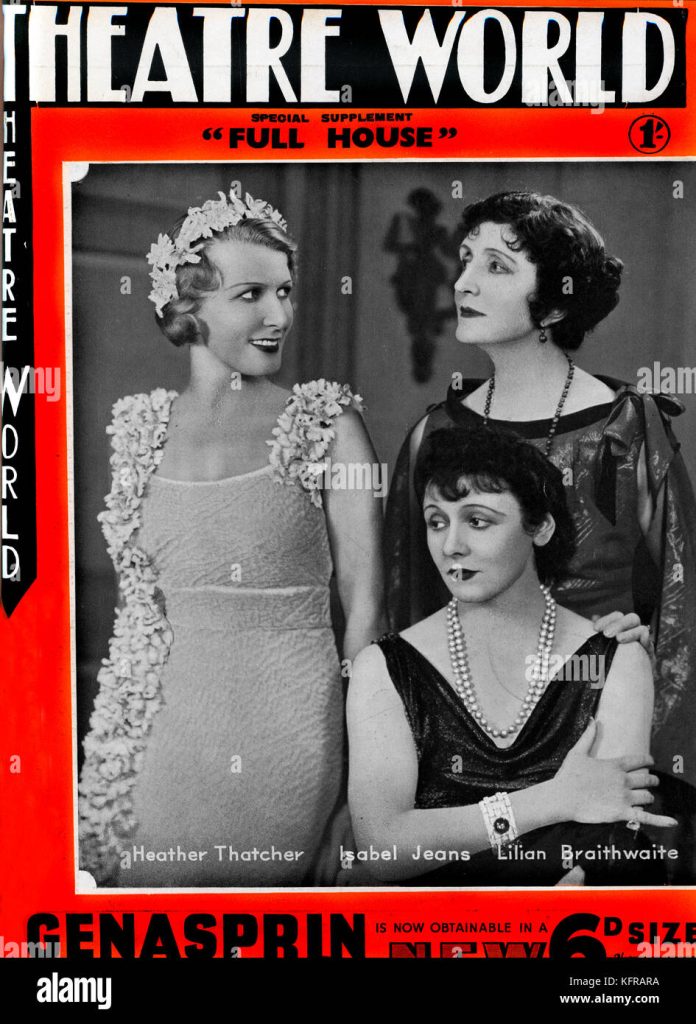
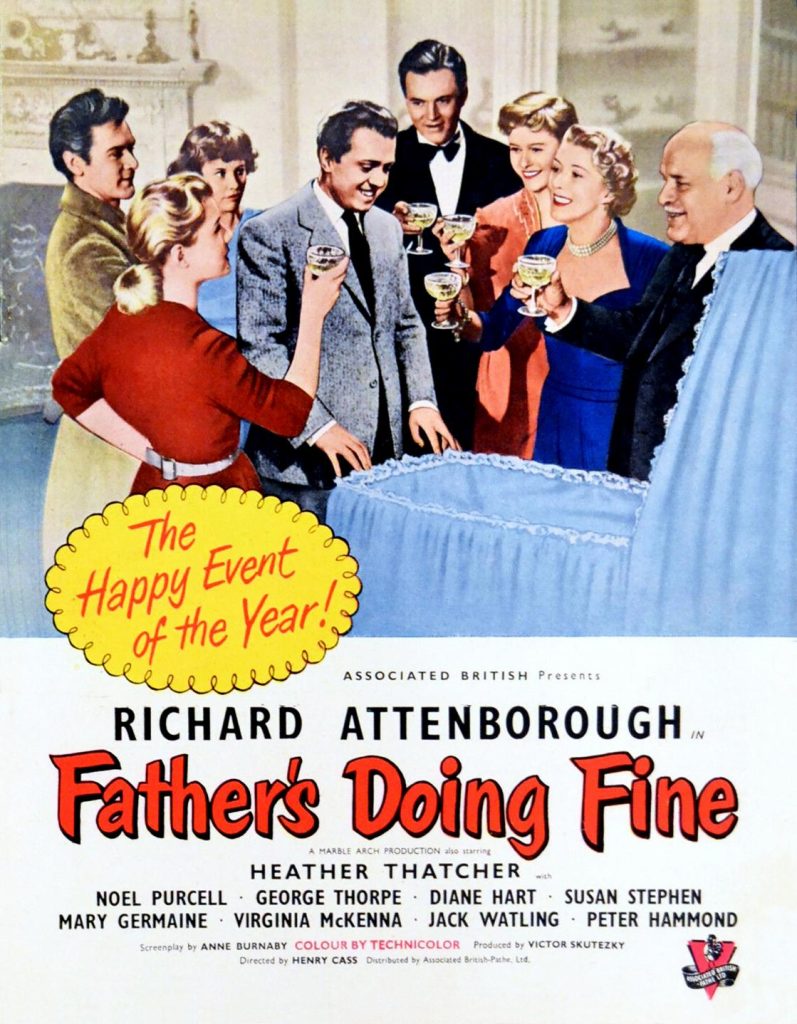
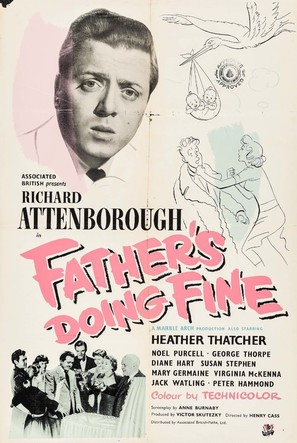
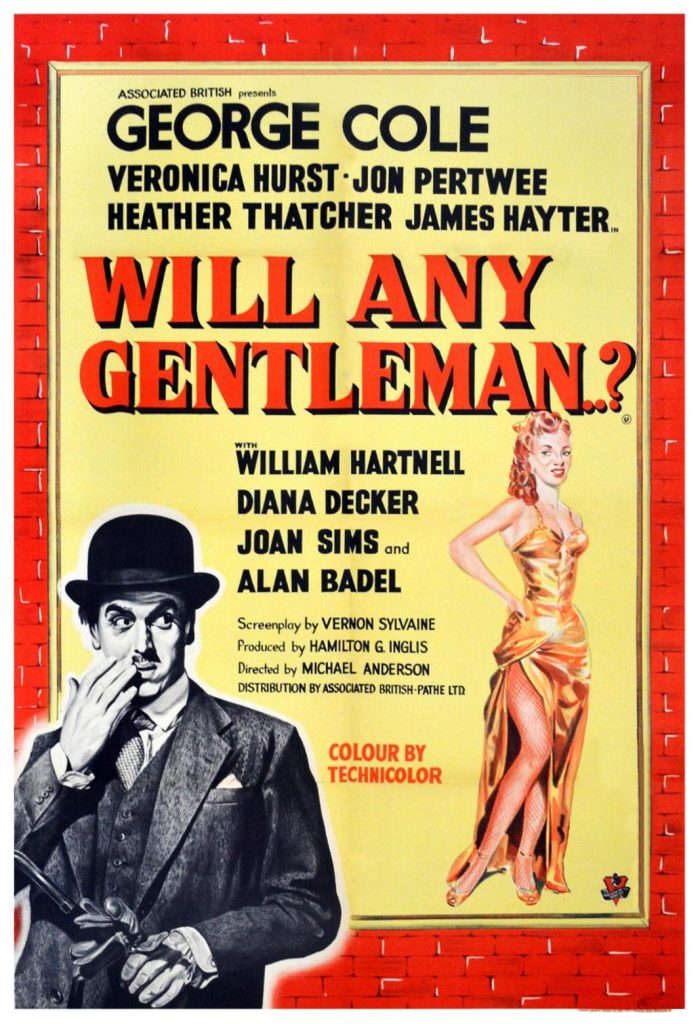
“Wikipedia” entry:
Heather Thatcher (3 September 1896 – 15 February 1987) was an English actress in theatre and films. She was from London.
By 1922 Thatcher was a dancer. She was especially noted for her interpretation of an Egyptian harem dance. Her exotic clothes were designed in Russia. They featured stencil slits in the waist, trouserettes and sleeves. Her attire was billed as the boldest costume ever shown in England.
Thatcher played the feminine lead in London stage productions like Oh Daddy and Warm Corner. At the London Winter Garden she sang and danced in a revue in 1923. In August 1926, she appeared in Thy Name Is Woman at the Q Theatre. It marked her graduation from musical comedy to serious acting.
She continued her London stage work, performing with June Clyde in Lucky Break. Premiering at the Strand Theatre in September 1934, the theatrical presentation was a production of Leslie Henson. In 1937, Thatcher went to America in Full House. The previous season, she was paired with Ivor Novello in the English rendition. Jack Buchanan, Austin Trevor andCoral Browne teamed with Thatcher in Canaries Sometimes Sing (1947). Produced by Firth Shephard, the theatrical presentation opened in Blackpool and moved to London a month later. Thatcher participated in a Salute To Ivor Novello at the London Coliseum in September 1951. The production raised funds to run his old home, Redroofs. It had been purchased by the Actors’ Benevolent Fund.
The Plaything (1929), produced by Castleton Knight and Elstree Studios, begins as a silent film. It develops into an audible film which is recorded in good quality for its time. The theme concerns a Highland laird who falls in love with a hedonistic London heiress. Thatcher plays a prominent role as Martyn Bennett.
In 1931 she visited Hollywood while attending the wedding of James Gleason. As a star of English comedy, she was being compared to Marilyn Miller, Thatcher wore a monocle to the marriage ceremony. In the autumn of 1931 she was invited to a reception following the premiere of Strictly Dishonorable (1931), at the Carthay Circle Theatre. Among her friends in films were Anthony Bushell and Zelma O’Neal.
Thatcher was signed by MGM in February 1932. She was given a feature role in But The Flesh Is Weak (1932). The film stars Robert Montgomery and is directed by Jack Conway. The film was adapted from a British stage production which showcased Novello. Thatcher was praised for her performance. German actress, Nora Gregor was found disappointing. The English actress “gives a brilliant performance and creates the only human being in the piece.”
Thatcher sued Gloria Swanson British Productions for breach of contract in a suit which was settled in December 1933. During the filming of Perfect Understanding (1933) Thatcher’s contract was cancelled before the production was completed. No explanation was given. She was excluded from the film when a new author was hired. The replacement writer chose to eliminate her character.
The Private Life of Don Juan (1934) was also filmed at Elstree Studios. The film has Douglas Fairbanks, Sr. as its leading man. Owen Nares plays the title role and Thatcher is Anna Dora, one of the ladies.
Later in her career Thatcher returned to England to make films. Among these is Will Any Gentleman…? (1953), filmed at Elstree Studios in Borehamwood. Thatcher appears together with George Cole and Veronica Hurst. The film was a short adventure about a hypnotist who puts a man in a trance.
Thatcher made her last films in 1955. The Deep Blue Sea has a screenplay written by Terence Rattigan and features Vivien Leigh and Kenneth More. Thatcher depicts Aunt May Luton in Josephine and Men. The film is a comedy starring Glynis Johns and Peter Finch.
Thatcher died in Hillingdon, London in 1987.
The above “Wikipedia” entry can also be accessed online here.

“Wikipedia” entry:
Ronald Howard (7 April 1918 – 19 December 1996) was an English actor and writer best known in the U.S. for starring in a weekly Sherlock Holmes television series in 1954.[1] He was the son of actor Leslie Howard.
Howard was born in South Norwood, London, the son of Ruth Evelyn (Martin) and film actor Leslie Howard. He attended Tonbridge School. After graduating from Jesus College, Cambridge, Ronald Howard became a newspaper reporter for a while but decided to become an actor.
His first film role was an uncredited bit part in Pimpernel Smith (1941), a film directed by and starring his father in the title role, though young Howard’s part ended up on the cutting room floor. In the early 1940s, Howard gained acting experience in regional theatre, the London stage and eventually films, his official debut in While the Sun Shines in 1947. Howard received varying degrees of exposure in some well-known films, such as The Queen of Spades (1949) and The Browning Version (1951). Howard played Will Scarlet in the episode of the same name of the 1950s British television classic The Adventures of Robin Hood starring Richard Greene. The character of Scarlet was later portrayed by Paul Eddington.
The 1954 Sherlock Holmes television series, based on the Arthur Conan Doyle characters and produced by Sheldon Reynolds, ran for 39 episodes starring Howard as Holmes andHoward Marion-Crawford as Watson. In addition to 21st century DVD releases, in 2006 and 2014 this series was broadcast in the UK on the satellite channel Bonanza.
Howard continued mainly in British “B” films throughout the 1950s and ’60s, most notably The Curse of the Mummy’s Tomb (1964), along with a few plum television guest roles in British and American television in the 1960s, including as Wing Commander Hayes in the 1967 Cowboy in Africa TV show with Chuck Connors and Tom Nardini. In the mid-1970s, he reluctantly put aside his acting career to run an art gallery.
In the 1980s he wrote a biography covering the career and mysterious death of his father, whose plane was shot down over the Bay of Biscay on 1 June 1943. His conclusion (which remains in dispute) was that the Germans’ goal in shooting down the plane was to kill his father, who had been travelling through Spain and Portugal, ostensibly lecturing on film, but also meeting with local propagandists and shoring up support for the Allied cause.[2] The Germans suspected surreptitious activities since German agents were active throughout Spain and Portugal, which, like Switzerland, was a crossroads for persons from both sides of the conflict, but even more accessible to Allied citizens.[3] The book explores in detail written German orders to the Ju 88 Staffel based in France, assigned to intercept the aircraft, as well as communiqués on the British side that verify intelligence reports of the time indicating a deliberate attack on Howard.[2] Ronald Howard was convinced that the order to shoot down the airliner came directly from Joseph Goebbels, the Nazi Minister of Propaganda, who had been ridiculed in one of Howard’s films, and who believed Howard to be the most dangerous British propagandist.
The above “Wikiupedia” entry can also be accessed online here.
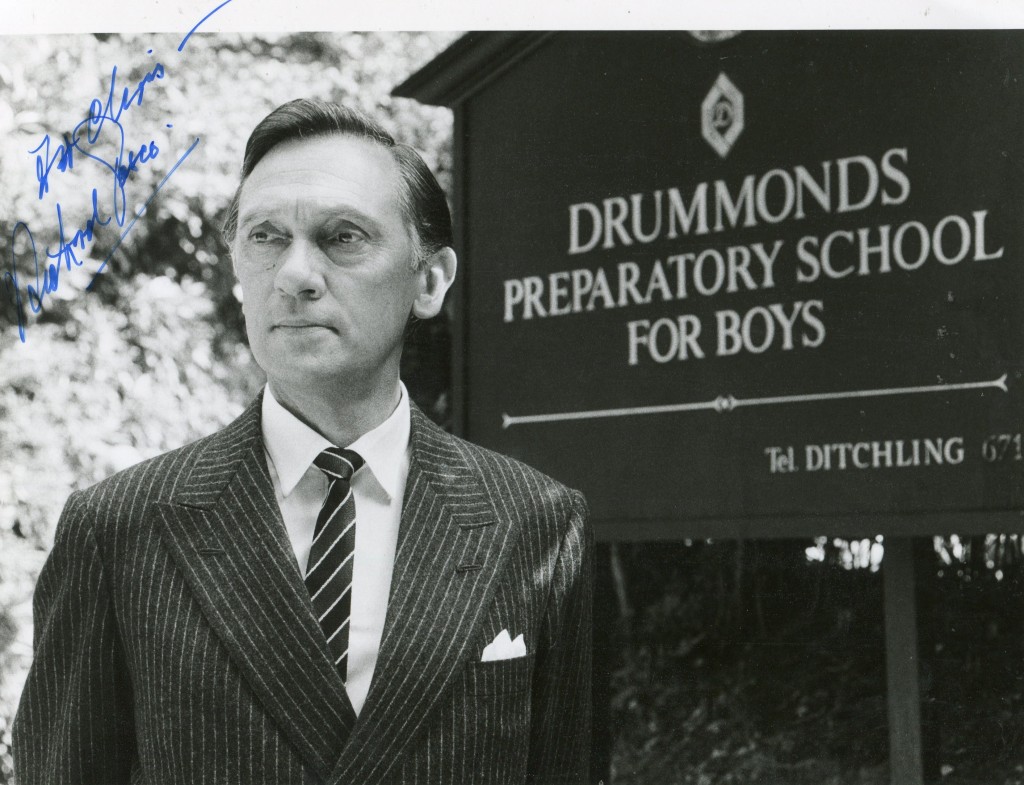
Michael Billington’s obituary of Richard Pasco in The Guardian”:
Richard Pasco, who has died aged 88, was one of the finest classical actors of his generation. Though he did not achieve the star status that would have come from appearing in a long-running TV series, no one who saw it will ever forget his alternation of the roles of Richard II and Bolingbroke in a famous 1973 RSC production. Gifted with a mellifluous voice and a strong presence, he worked with all the major companies, including long stints at Bristol Old Vic andBirmingham Rep in their heyday. Pasco had a prolific, stage-driven career that few young actors today can hope to emulate.
Born in Barnes, west London, to Cecil and Phyllis, he was educated at King’s College school, Wimbledon, and pitched into the business at 16 as an apprentice stage manager, and occasional actor, at the old Q Theatre, near Kew Bridge. After military service (1944-48), he trained at the Central School of Speech and Drama, from which he emerged with a gold medal. Two seasons at the Old Vic were followed by three more at Birmingham Rep (1952-55), then under the directorship of Douglas Seale. A typical Birmingham season in those days included Euripides, Shakespeare, Molière, Sheridan, JM Barrie and Clifford Odets; and Pasco emerged from the theatrical equivalent of university a stronger, more versatile actor.
I first saw him when he played Jimmy Porter in 1957 in one of the Royal Court’s countless revivals of John Osborne’s Look Back in Anger; my chief memory is of Pasco’s mercurial vitality and ability to bring out Jimmy’s gift for vitriolic comedy. In the same year, Pasco, who became a good friend of Osborne, played Archie Rice’s son, Frank, in The Entertainer; in his memoirs, Osborne recalled the two of them singing “Don’t be afraid to sleep with your sweetheart” at the raucous first-night party.
After several West End appearances, in 1964 Pasco joined the Bristol Old Vic, where he blossomed into a major actor and where the list of his performances over three seasons is astonishing: Henry V, Berowne (Love’s Labour’s Lost), Angelo (Measure for Measure), Peer Gynt, John Tanner in Shaw’s Man and Superman, and Hamlet (twice). I saw his 1966 Hamlet, in Val May’s Regency-set production, and was bowled over by it. JC Trewin wrote that “Pasco was not a man for back-room mumbling or jagged, saw-toothed Shakespeare.” But, apart from Pasco’s sublime music, I remember the physical bravura that led him, during “O, what a rogue and peasant slave,” to send the throne hurtling down the steps.
It seemed almost inevitable that Pasco would sign up with the RSC, which he duly did in 1969 – and stayed, more or less continuously, for the next 11 years. In his first season, he was Polixenes in The Winter’s Tale, Proteus in The Two Gentlemen of Verona and Buckingham in Henry VIII. Gradually the roles got bigger. I remember him in 1972 as a charismatic Becket – a role he dubbed his favourite – in Terry Hands’s production of TS Eliot’s Murder in the Cathedral.
The famous alternation of Richard II and Bolingbroke, with Ian Richardson, was his finest hour. John Barton’s idea of seeing the two leading characters as mirror images of each other, rather than violent opposites, was a revelation. If Richardson’s Richard II was – in the words of Christopher Ricks – “Charles I in the first half and Jesus Christ in the second”, Pasco’s Richard was a flamboyant despot who acquired dignity in defeat.
The moment I have never forgotten came when Pasco, on “God omnipotent is mustering in his clouds on our behalf,” descended a flight of steps while spreading his golden cloak like a giant bird. And, as Bolingbroke, Pasco was no mere burly baron but an acquisitive power-seeker, quickly broken.
In that same season, Pasco was Jacques, to Eileen Atkins’s Rosalind, in Buzz Goodbody’s As You Like It, giving a brilliant performance as a blinkered cynic in a crumpled white suit. In more than a decade at the RSC, Pasco also played the Bastard in King John, Aleister Crowley in Snoo Wilson’s The Beast and, most memorably, Timon of Athens in Ron Daniels’s 1980 production. In the first half, he had the air of an innocent prodigal. But it was in the later tirades that he came into his own. As I wrote at the time: “With his red-rimmed eyes, patchwork costume and habit of gnawing passionately at root vegetables, he is the picture of desolation: a poor, bare, forked animal with vast reserves of hate.”
In later years, Pasco settled into the routine of the jobbing actor, appearing in occasional films, such as Mrs Brown (1997), in which he played the physician to Judi Dench’s Queen Victoria, and popular TV series including Inspector Morse, Kavanagh QC and Hetty Wainthropp Investigates. He and his second wife, Barbara Leigh-Hunt, whom he married in 1967, were also in constant demand at poetry recitals. In 1977 he was appointed CBE.
It was good to see Pasco back on stage in the David Hare trilogy about religion, the law and the Labour party at the National in 1993. He was especially memorable as the bishop of Southwark, whose “brass balls clang as he walks”, in Racing Demon: in a classic scene, borrowed from Brecht, Pasco acquired ever more dogmatic rigour as he donned his ceremonial vestments. But, whatever role he played, in a glorious, predominantly classical career, Pasco invested it with authority and adorned it with an unforgettable voice that could switch naturally from trumpet to cello.
He is survived by Barbara and by William, the son from his first marriage, to Greta (nee Watson), which ended in divorce.
• Richard Edward Pasco, actor, born 18 July 1926; died 12 November 2014
Anyone who knows me are aware that I am a bit of a movie buff. Over the past few years I have been collecting signed photographs of my favourite actors. Since I like movies so much there are many actors whose work I like.